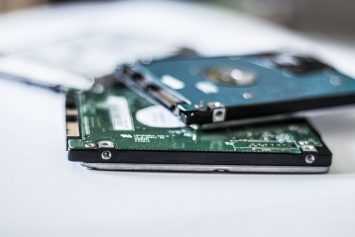As we delve deeper into the digital age, the importance of advanced technology such as Internet of Things (IoT) cannot be overstated. IoT implies the interconnection of devices via the internet, creating a network of smart devices that can communicate and share data with each other. Central to this technological revolution is .NET, a powerful framework developed by Microsoft.
The widespread adoption of IoT has transformed various industries, from healthcare to transportation and manufacturing. With IoT, data can be collected in real-time, enabling businesses to make informed decisions and improve efficiency. Furthermore, IoT has opened up new possibilities for automation and remote monitoring, enhancing convenience and safety in our everyday lives.
What is IoT?
IoT, or the Internet of Things, is a revolutionary concept that refers to the interconnection of everyday devices via the internet, creating a network of ‘smart’ objects. These interconnected devices are capable of collecting, sending, and receiving data, enabling them to communicate and collaborate with each other without human intervention.
From smart homes that automate heating and lighting systems, to wearable fitness devices that monitor our health, and industrial IoT that optimizes operational efficiency, the Internet of Things is transforming our lifestyles, professional endeavors, and interactions with the surrounding world. This technology is not just about device connectivity, but also about leveraging the power of data, thus providing valuable insights and enabling smarter decisions.
The Role of .NET in IoT
.NET, with its robust and flexible capabilities, has established itself as a go-to framework for IoT applications. It offers a vast collection of libraries and APIs that make it easier to develop and deploy IoT applications. With .NET, developers can write code that can run across different devices, thereby ensuring interoperability and seamless data sharing.
- Interoperability: .NET supports the development of applications that can run across a wide range of IoT devices, ensuring seamless data sharing and device communication.
- Security: .NET offers robust security features, making IoT applications more secure against cyber threats.
- Ease of Development: With a rich set of libraries and APIs, .NET simplifies the process of creating complex IoT applications.
- Support for Microservices: .NET is well-suited for building microservices which are essential for developing scalable and maintainable IoT applications.
- Cross-Platform Capability: .NET’s cross-platform capability allows developers to write code once and run it on multiple operating systems, a key advantage in the diverse world of IoT.
- Integration with Cloud Services: .NET integrates well with various cloud platforms, allowing for efficient data management and processing in IoT applications.
Opportunities
The integration of .NET and IoT opens up a trove of opportunities. With .NET’s scalable and secure framework, organizations can develop IoT systems that can rapidly process and analyze data, provide real-time insights, and facilitate decision-making. Its ability to work with various programming languages also adds to its usability in diverse IoT applications.
- Expanding Market Reach: With .NET software development, businesses can design IoT applications that cater to an array of devices and platforms, thus increasing their market reach.
- Streamlined Processes: .NET software development allows organizations to create IoT systems that streamline operations, enhance efficiency, and reduce costs.
- Enhanced Customer Experience: Leveraging .NET for IoT software development can lead to the creation of intuitive and interactive applications, offering a superior user experience.
- Data-Informed Decision Making: .NET’s compatibility with large-scale data processing and cloud integration enables businesses to make informed decisions based on real-time insights gathered from IoT devices.
- Scalable Solutions: The use of .NET in IoT software development offers scalable solutions, allowing businesses to fluidly increase their operation size as they grow.
- Robust Security: The inherent security features of .NET provide a robust layer of protection for IoT applications, safeguarding sensitive information from potential cyber threats.
- Innovation and Agility: With its support for microservices, .NET software development ensures agility and fosters innovation in developing IoT applications.
Considerations
While .NET offers numerous advantages, there are considerations that must be kept in mind while using .NET for IoT. Security, for instance, is a prime concern given the sensitive nature of data handled by IoT devices. .NET’s built-in security features can address these concerns, but organizations must ensure that they are properly implemented.
- Device Compatibility: Despite .NET’s broad compatibility, it’s crucial to ensure it supports the specific IoT devices used by your business before proceeding with development.
- Maintenance and Support: Consider the long-term maintenance and support requirements of your IoT applications. This includes regular updates, patching security vulnerabilities, and addressing technical issues.
- Cost of Development: While .NET can potentially reduce development costs, it’s important to account for potential licensing fees, hardware requirements, or any additional expenses related to IoT development.
- Integration with Existing Systems: The ability of .NET-developed IoT applications to integrate smoothly with your existing business systems is another essential consideration.
- Skilled Workforce: Building IoT systems with .NET requires a skilled set of developers familiar with the framework. Hence, the availability of such professionals is a crucial factor.
Conclusion
The integration of .NET in IoT development presents a remarkable opportunity for businesses to create versatile, scalable, and secure applications. While there are important considerations to bear in mind, the benefits this technology offers make it a compelling option. However, success in implementing .NET for IoT largely hinges on the expertise of the development team, their understanding of these capabilities, and their ability to anticipate potential challenges. Therefore, opting for a team that is experienced in both .NET and IoT development is crucial. With the right approach and resources, businesses can leverage it to unlock the full potential of IoT, driving innovation and gaining a competitive edge in their respective markets.
Author Bio :- Arjun is a Business Growth Strategist at a Leading Software Development Company. Apart from working on a long-lasting relationship with customers and boosting business revenue, I am also interested in sharing my knowledge on various technologies through successful blog posts and article writing.




